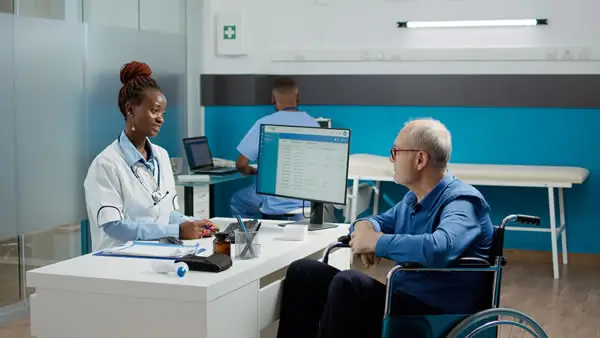Denial Management
Denial Management
Need more information? Contact us at fractionalpa@gmail.com
How Physician Advisors can help
A physician advisor’s effectiveness during a peer-to-peer (P2P) consultation, which involves discussions between healthcare providers to resolve disputes or clarify clinical decisions, relies on several key qualities and skills. A good physician advisor in a P2P scenario should possess the following attributes:
Clinical Expertise: A strong foundation in clinical medicine is paramount. The advisor should have a deep understanding of medical conditions, treatment options, and best practices to provide evidence-based guidance during the consultation.
Communication Skills: Effective communication is crucial during P2P consultations. The advisor should be able to convey complex medical information clearly and concisely to their peers, ensuring that everyone involved understands the clinical rationale behind their recommendations.
Empathy and Diplomacy: P2P discussions can be emotionally charged, especially when there are disagreements or disputes. A good advisor should demonstrate empathy and diplomacy, acknowledging the concerns and perspectives of all parties involved while maintaining a respectful and collaborative tone.
Active Listening: Listening attentively to the concerns and questions of the requesting physician is essential. This helps the advisor gain a comprehensive understanding of the situation and allows them to address specific issues effectively.
Problem-Solving Skills: The advisor should be skilled at analyzing complex clinical scenarios, considering available evidence, and proposing solutions or alternative treatment options that align with best practices and regulatory guidelines.
Knowledge of Regulations and Guidelines: Familiarity with healthcare regulations, insurance policies, and clinical guidelines is critical. The advisor should ensure that their recommendations adhere to legal and regulatory requirements.
Cultural Competence: Understanding and respecting cultural differences, as well as the diversity of patients and healthcare providers, is important for effective communication and collaboration during P2P consultations.
Conflict Resolution Skills: In situations where there is disagreement or conflict, the advisor should have strong conflict resolution skills to facilitate a productive discussion and help parties find common ground.
Time Management: Efficient time management is essential to ensure that P2P consultations are conducted promptly, especially in cases where clinical decisions need to be made urgently.
Documentation: Thorough and accurate documentation of the P2P consultation is essential for legal and compliance purposes. The advisor should maintain clear records of the discussion, recommendations, and any agreements reached.
Continuous Learning: Medicine is an ever-evolving field. A good physician advisor should stay updated with the latest research, guidelines, and best practices to provide the most current and relevant advice during consultations.
Patient-Centered Approach: Ultimately, the advisor’s focus should be on what is in the best interest of the patient. They should advocate for patient-centered care and ensure that the clinical decisions align with the patient’s needs and preferences.
Confidentiality and Ethical Integrity: The advisor must maintain strict confidentiality regarding patient information and uphold the highest ethical standards during P2P consultations.
Overall, a good physician advisor in a P2P setting combines clinical expertise, effective communication, empathy, and problem-solving skills to facilitate collaborative and informed decision-making among healthcare peers, ultimately benefiting patient care and outcomes.


